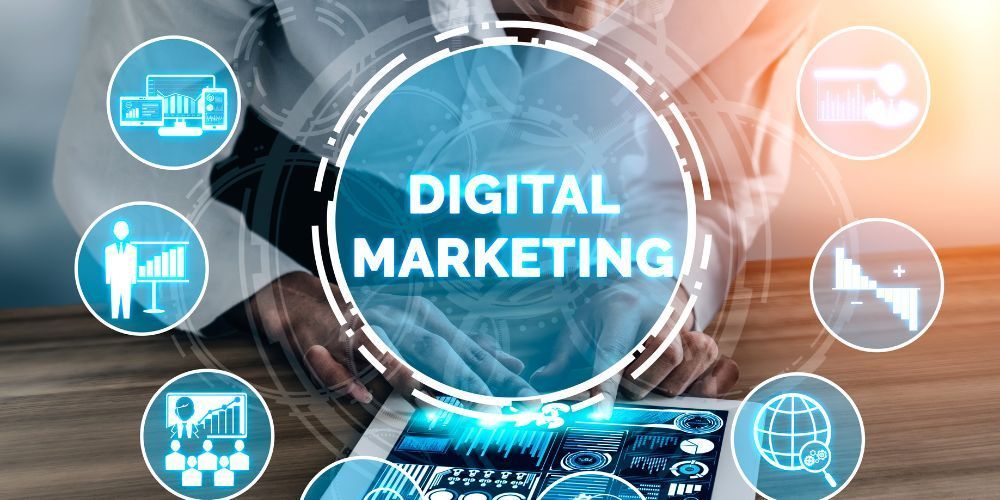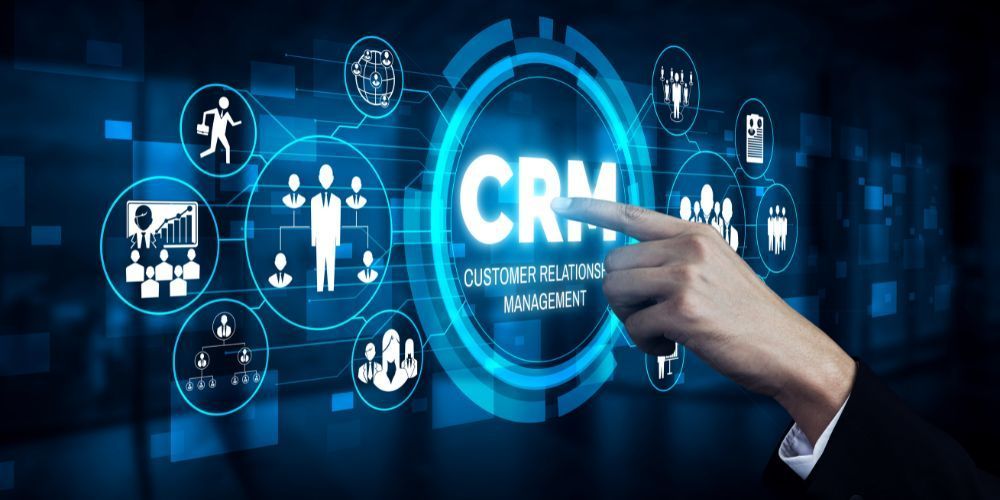Building the Ultimate MarTech Stack: Essential Tools for 2025
The rapid evolution of marketing technology (MarTech) is reshaping how businesses engage with customers, optimize campaigns, and drive revenue. As we enter 2025, assembling the ultimate MarTech stack requires a strategic approach, integrating the best tools across various categories to enhance automation, analytics, and customer relationship management. The right MarTech stack enables businesses to stay competitive, improve operational efficiency, and foster deeper customer connections. Here’s a guide to the essential MarTech tools that will define success in the coming year.

1. Customer Relationship Management (CRM)
A robust CRM system is the backbone of any modern marketing strategy, enabling businesses to manage interactions and relationships with customers efficiently. With customer expectations evolving, businesses need a centralized platform to track customer interactions, store valuable insights, and facilitate seamless communication across teams. CRM systems not only enhance productivity but also ensure a personalized experience for customers, leading to stronger engagement and retention.
- Salesforce – A market leader in CRM, Salesforce provides advanced AI-driven insights and automation features to streamline customer engagement.
- HubSpot CRM – A user-friendly option with built-in marketing automation, sales pipeline tracking, and seamless integrations.
- Zoho CRM – Ideal for small to mid-sized businesses, offering AI-powered analytics and multichannel communication capabilities.
By leveraging a powerful CRM, businesses can create a more organized and data-driven approach to customer relationships, ultimately improving sales, retention, and overall customer satisfaction.
2. Marketing Automation
Automation is key to scaling marketing efforts while maintaining personalization. The right tools can enhance lead nurturing, email marketing, and customer engagement, reducing manual effort while increasing efficiency. Marketing automation platforms help businesses execute campaigns at scale, track performance metrics, and refine customer interactions through data-driven insights.
- Marketo Engage – A top-tier solution for B2B marketing automation, integrating lead management, analytics, and campaign execution.
- Pardot – Designed for B2B marketers, providing automated lead scoring, nurturing, and Salesforce integration.
- ActiveCampaign – A great option for SMEs, combining email marketing, CRM, and automation with AI-driven insights.
With an effective marketing automation strategy, businesses can optimize workflows, increase efficiency, and ensure customers receive timely and relevant communications, leading to higher engagement and conversion rates.
3. Data & Analytics
Data-driven decision-making is critical in 2025, requiring powerful analytics tools to measure performance, optimize campaigns, and understand customer behavior. Without actionable insights, marketing efforts can become ineffective and misaligned with business objectives. The right analytics tools provide a comprehensive view of customer interactions, campaign performance, and emerging trends, enabling marketers to refine strategies in real time.
- Google Analytics 4 (GA4) – A next-generation analytics platform with AI-powered insights and cross-platform tracking.
- Adobe Analytics – A sophisticated tool offering deep segmentation, predictive analytics, and AI-driven recommendations.
- Tableau – A visualization powerhouse that integrates with various data sources to deliver real-time insights.
Investing in analytics tools ensures businesses can track KPIs, measure ROI effectively, and continuously optimize marketing strategies for sustained growth.
4. Content Management & SEO
A strong content strategy relies on an effective CMS and SEO tools to drive organic traffic and improve brand visibility. Content marketing remains a fundamental pillar of digital marketing, and the right tools can help businesses create, manage, and optimize content to align with search intent and industry trends.
- WordPress – The most popular CMS, offering flexibility and a vast plugin ecosystem.
- SEMrush – A comprehensive SEO and competitive analysis tool that helps optimize search rankings.
- Ahrefs – Ideal for backlink analysis, keyword tracking, and content strategy development.
By leveraging CMS and SEO tools, businesses can ensure their content reaches the right audience, improves search visibility, and establishes authority in their respective industries.

5. Social Media & Advertising
Social media and paid advertising are critical components of a successful MarTech stack, helping brands reach their audience effectively. With the increasing number of digital platforms, managing social media and advertising efforts efficiently is essential for maximizing engagement and ROI.
- Hootsuite – A powerful social media management tool that schedules posts, monitors conversations, and analyzes engagement.
- Sprout Social – Provides deep analytics, social listening, and team collaboration features.
- Google Ads & Meta Ads Manager – Essential platforms for running targeted paid campaigns with real-time performance tracking.
By integrating social media and advertising tools, businesses can strengthen brand awareness, engage with audiences, and drive measurable campaign results.
6. Personalization & Customer Experience
Delivering personalized experiences is key to standing out in a crowded market. AI-driven tools enhance personalization and customer engagement by leveraging data to create tailored marketing messages and user experiences.
- Dynamic Yield – A leader in AI-powered personalization, helping brands tailor web experiences in real time.
- Optimizely – Offers robust A/B testing and experimentation features to optimize user journeys.
- Segment – A customer data platform (CDP) that unifies customer data for hyper-personalized marketing efforts.
With personalization tools, businesses can build stronger customer relationships, increase conversions, and deliver highly relevant experiences that drive long-term loyalty.
7. AI & Chatbots
AI-powered tools and chatbots improve customer interactions and automate responses at scale. These technologies help businesses provide instant support, streamline workflows, and create seamless digital experiences.
- Drift – A conversational AI chatbot that enhances lead generation and customer engagement.
- Intercom – A live chat and chatbot platform that integrates with various CRMs and marketing tools.
- ChatGPT for Business – A powerful AI-driven chatbot for providing personalized customer support and content recommendations.
By integrating AI-driven chatbots, businesses can improve response times, boost customer satisfaction, and optimize internal resources.
8. Email Marketing & Lead Nurturing
Despite the rise of new channels, email remains a powerful marketing tool when combined with automation and segmentation. A well-crafted email strategy ensures businesses can engage their audience with timely, relevant, and personalized communications.
- Mailchimp – A versatile platform offering automation, segmentation, and detailed analytics.
- Klaviyo – A top choice for e-commerce brands, delivering personalized email and SMS marketing.
- Cordial – Advanced automation and AI-driven personalization to enhance engagement and conversions.
By leveraging email marketing tools, businesses can maintain strong customer relationships, drive conversions, and maximize the impact of their marketing campaigns.
Building Your Ideal MarTech Stack for 2025
The best MarTech stack is one that aligns with your business goals, integrates seamlessly, and enhances efficiency. When selecting tools, consider factors like scalability, ease of integration, and the ability to leverage AI and data-driven insights. By strategically combining CRM, automation, analytics, and AI, businesses can create a marketing ecosystem that drives growth and delivers exceptional customer experiences. Staying agile and continuously optimizing your MarTech stack will be the key to long-term success in 2025 and beyond.










